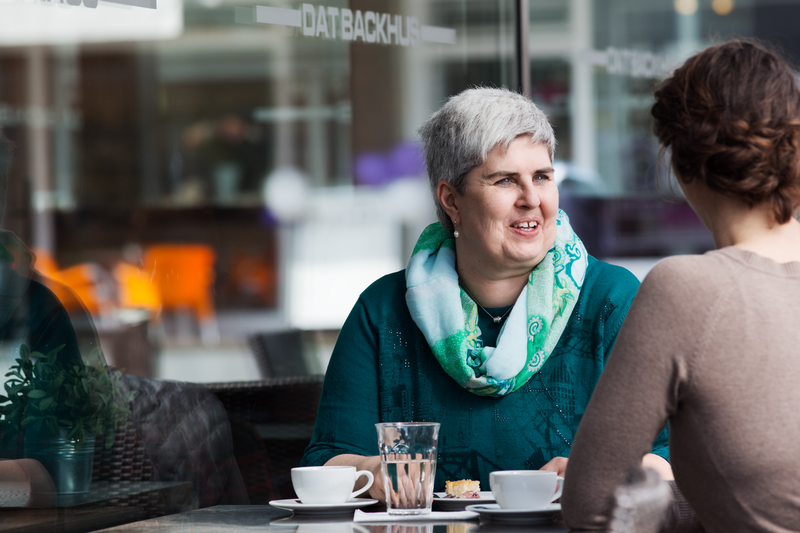Why does multiple sclerosis cause continence problems?
The bladder, which stores urine, is controlled by the nervous system. Because multiple sclerosis damages nerves, bladder function may be affected. Some people find that they need to urinate more frequently or urgently, whereas others experience difficulty emptying the bladder. Some people with multiple sclerosis may experience occasional urinary incontinence.
MS can also affect the bowel. Nerve endings in the rectum help to alert people of the need to pass a stool when it enters the rectum. In people with multiple sclerosis, this message may become lost or incomplete. This increases the risk of bowel problems such as constipation, faecal incontinence or a combination of both. Certain drugs commonly prescribed for multiple sclerosis can also increase the likelihood of constipation.
How can I manage incontinence?
There are several medications to control bladder frequency and urgency, prescribed by a doctor or continence adviser. There are also treatments to help manage constipation that you can buy over the counter. It is best to seek professional advice before purchase to ensure you use the best option for your needs.
Continence aids may help with your bladder or bowel issues. Speak with an MS nurse or continence adviser about tailored options to improve your individual situation.
Small changes can make a big difference to bladder and bowel control issues, such as an easy-to-access toilet or bathroom.
Peace of mind about toilet facilities and their locations can also make a big difference. Consider calling ahead to your destination to ensure there are adequate, accessible facilities or refer to the National Toilet Map.
For anyone with bladder problems, it’s still important to drink plenty of water to avoid complications such as urinary tract infections or constipation. Not enough water makes urine concentrated and irritates the bladder, causing more frequent urinating. Aim to drink 1.5 to 2 litres of fluid daily (preferably water, but discuss other safe forms of fluid with your GP), in three or four intervals. This way, you maintain your fluid intake but don’t increase frequency. Avoid too much fluid for up to two hours before bed or going out.
A healthy bowel pattern also benefits from a well-balanced, high-fibre diet of foods such as oats, fruits (fresh, stewed or dried), vegetables and wholegrain or wholemeal foods including oatmeal, rice, wheat and barley, cereals and breads, also nuts and lentils.
Smoking can increase coughing and, in turn, the risk of incontinence. Smoking can also cause other health problems, and has even been linked with the development and progression of MS.
Regular exercise is important for everyone, especially for people with MS. Even for those with limited mobility, exercise improves your body’s blood flow, including the gut, which helps prevent constipation. Regular exercise will also help you to maintain an ideal body weight. Excess body weight applies pressure to the area around your bladder and bowel.
Pelvic floor muscle exercises are another great way to help the bowel and bladder function properly and maintain continence.
Even with bladder and bowel issues, you and your partner can still enjoy intimacy. Discuss this with your partner or, for a tailored plan, your MS nurse or continence adviser.
Getting help
It’s not always easy accepting help, but letting others help you will actually let you be more independent and active.
Many people who experience bladder or bowel issues are hesitant to see their healthcare professional because they find it embarrassing. Bladder or bowel problems need to be properly managed, and if left untreated, they could result in serious health issues.
We’ve partnered with Coloplast to provide free consultation clinics to ensure you’re best informed about how to manage incontinence.

Smiling woman in a green shirt is at a cafe with a friend
Together with a Coloplast Clinical Nurse you can find products and discuss routines that best suit you, your MS and your symptoms.
We can provide the following services (in clinic or via Telehealth):
- Teaching and training in the use of intermittent catheters (for bladder emptyingissues)
- Teaching and training of Peristeen transanal irrigation (for bowel incontinence and
- constipation)
- Product demonstration and sampling (intermittent catheters, bags and sheaths/condom drainage). Coloplast does not offer a continence solution with pads or absorbent undergarments
- Health and lifestyle education (prevention and management of infections; maintaining
- bladder health and routine when working/ travelling/ engaging in leisure activity)
- Pre-planning/ review support for NDIS participants using intermittent catheters, indwelling devices, sheaths, drainage bags or bowel products. Coloplast is unable to assist with reviews of pad usage
- Suitable product recommendations
Throughout the roll-out of the NDIS there has been continuous improvements to the scheme and as of the 1st of October 2019, the NDIS will fund a range of health-related supports and will have a clearer guidance of what they can and cannot support with.
What’s new? Participants will still be able to receive full funding for their bladder and bowel management solutions, but NDIS will now also fund catheter changes and cleaning of catheters for those using a catheter solution.
If you have bladder or bowel concerns, you can talk to a Coloplast Clinical Nurse about a range of different scenarios. For serious concerns, you should always consult your healthcare professional.
Irene [from Coloplast] is warm and caring, and very easy to talk to, as well as being super-efficient and professional. She organised for catheters to be sent from Coloplast, while waiting for funds from NDIS.
Thanks to Irene, I now have a better quality of life and control of symptoms. Having a steady supply of catheters – no more wash and reuse – is such a bonus.
So, for anyone with continence issues, I highly recommend Irene.
JF (anonymous)


